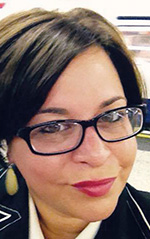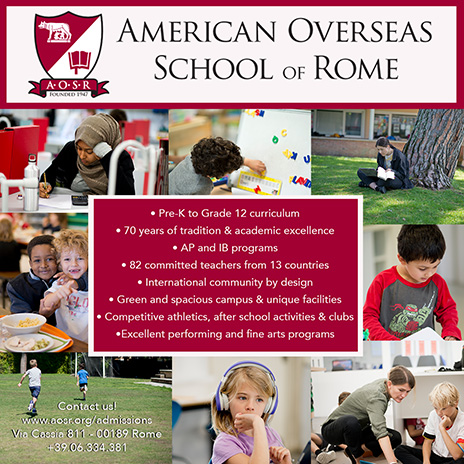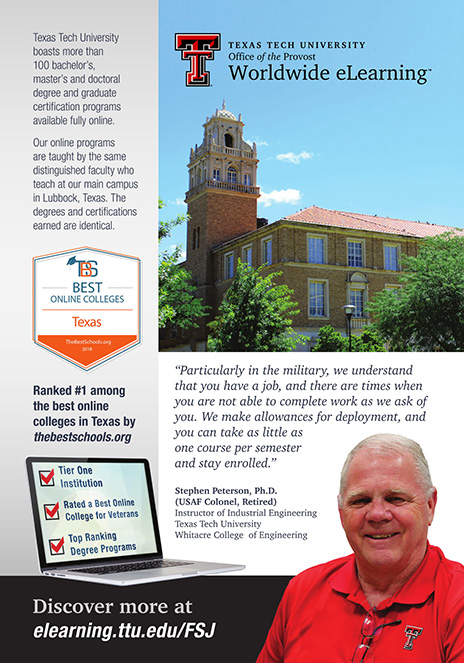AP vs. IB: A Practical Comparison
Making high school curriculum choices can be daunting for Foreign Service families. Here is some insight into the AP and IB programs.
BY MARYBETH HUNTER WITH KRISTEN A. MARIOTTI
It is great to have freedom of choice. However, with choice lies the responsibility of researching and evaluating options to select the best one available at any given time. When choosing schools, this may mean evaluating factors such as setting, curriculum and overall teaching methodology to enrich the education of a child at a certain grade level.
The task of choosing between schools offering different educational objectives with long-term impact can present a challenge for Foreign Service families. This is the case when families are presented with the choice of Advanced Placement or International Baccalaureate coursework.
What is the “right” choice? The U.S. Department of State Bureau of Human Resources’ Family Liaison Office in Washington, D.C., and the Community Liaison Office coordinators at post are often asked to explain the difference between AP and IB programs so parents can make the best choices for their families as they transition from post to post.
FLO reached out to Kristen Mariotti, a featured speaker at conferences in the United States and abroad on college preparation and the respective advantages of the two programs, to answer the questions we most often receive.
As you will see in the following, both programs offer strong preparation for higher university education—with differing approaches. Note that the Department of State and the Family Liaison Office do not endorse either program and strongly advise families to independently research education options for their children.
Parents are most familiar with their Foreign Service students’ learning mode preferences. It may be helpful to think carefully about these preferences and which system, be it AP or IB, is most aligned with the student’s learning styles for the best long-term outcomes.
FLO: What are the advantages of taking classes in AP or IB? How can a student evaluate whether the extra effort and work will be worth it?
Kristen Mariotti: The Advanced Placement and International Baccalaureate programs are both considered the highest level of courses a student can take in high school in the United States.
Both programs are revered by colleges and universities, and in recent years, as the understanding of the IB program has grown in the United States, it has become a preferred curriculum for many post-secondary institutions because of its similarity to university-level learning and teaching methodologies. AP is still accepted at most colleges and universities, as well.
Both programs offer opportunities for students to receive post-secondary credits once enrolled at a college or university. The IB program is more widely accepted in countries outside the United States, especially in Europe.
Advantages of IB. The IB program is not solely about academics; it also challenges students to enhance their personal growth. IB aspires to help schools develop well-rounded students with strong character and a global mindset. IB students often indicate that they have gained excellent time-management skills and other critical attitudes needed for academic and personal success.
The IB program increases understanding of languages and cultures and explores globally significant ideas and issues in each subject area. Subjects are not taught in isolation. IB classes are interdisciplinary and connect learning across the curriculum. The IB program is a liberal arts approach to education. Students must study two languages, math, science, individuals and societies, and the arts. There is both depth and breadth.
A unique part of the IB program is the requirement of three core courses for full diploma status: the theory of knowledge (TOK) course, the extended essay (EE) research project, and the creativity, action and service (CAS) component.
Through the TOK course on critical thinking, students make connections across traditional disciplines and explore the nature of knowledge. They inquire into the nature of knowing and deepen their understanding of knowledge as a human construction.
In the EE, students undertake in-depth research into an area of interest through the lens of one or more academic disciplines. And through CAS, students enhance their personal and interpersonal development. Creativity encourages students to engage in the arts and creative thinking. Action seeks to develop a healthy lifestyle through physical activity. The service aspect offers an avenue for new learning that supports academic development.
Finally, in terms of assessment, students have multiple opportunities in each course to “show what they know” using various modes of communication and formats. The IB program is not about memorizing and guessing from a list of answers, but about truly understanding the material at a deeper level.
Advantages of AP. The College Board states: “The purpose of these classes and tests is for students to earn college credit while in high school. Advanced Placement exams began in the 1950s as a way for students to stand out on their college applications, and they are still growing strong as kids prepare for a competitive market. The tests are offered in 34 subjects, which range from biology, statistics and psychology to art history and studio art drawing.”
Many AP classes in high school are given extra “weight” and thus increase a student’s GPA if she or he performs well. Taking AP courses not only offers a high level of academic learning, but it can also save families money for college and university. At most colleges, students receive some sort of class credit for AP exam scores of 3 and higher (exams are scored from 1 to 5). This credit often goes toward introductory-level college courses in the same subject.
With the option to skip some introductory classes, AP students can choose to graduate early. Further, AP students often find more flexibility in their scheduling at college because they can jump right into many courses that speak to their interests and career objectives.
Because of the accelerated speed of an AP class and the higher-level learning that occurs, many college admissions counselors find AP students well prepared for college-level learning. These students have shown that they can handle a fast-paced, academically challenging program, and that will serve them well in their post-secondary educational pursuits.
How does a student evaluate whether the extra effort and work will be worth it? If a student is self-motivated and committed to her or his studies, any higher-level academic program will be worth it in terms of college and university placement and overall preparation for the next academic step.
Both IB and AP are very rigorous courses that colleges like to see on high school transcripts. If the goal of a student is to get into a top college, both programs will give the student an advantage and possible credit for work completed.
FLO: Can you contrast the examination methods?
KM: For most courses in the IB program, written examinations are a major component of the assessment. There are also in-house assessments, labs, performances and oral exams.
Externally assessed coursework, completed by students over an extended period under authenticated teacher supervision, forms part of the assessment for all IB courses and several program areas, including the TOK and the EE essays. In most subjects, students also complete in-school assessment tasks. These are either externally assessed or marked by teachers and then moderated by the IB.
For AP, the exams are given at the end of the year as the culmination of a yearlong course. All AP exams (with a few exceptions) combine multiple-choice questions with a free response section in either essay or problem-solving format. For students skilled at standardized testing, the AP might be a better program in terms of assessment.
FLO: Can you contrast the grading systems?
KM: The main contrast in the scoring of AP and IB is the people doing the scoring. AP is scored by a U.S. organization, while the IB scoring team is made up of a global group of educators.
Because the IB is a global program, the scores for these exams are more widely accepted in universities and colleges all over the world. Because there are more score ranges in the IB, the highest-ranked students are truly the top in their class, while in AP there is a wider range in each level.
AP tests are accepted by most U.S. colleges and universities (some international universities will consider them, as well), while IB is accepted worldwide at most universities and colleges.
FLO: How can students successfully transition from AP to IB and vice versa?
KM: Because the two programs are taught in very different ways, transitioning from one to the other can be difficult for some students. IB focuses on learning subjects deeply within the context of an interdisciplinary curriculum, while AP is more fast-paced and encourages students to learn as much as possible in a subject in a short amount of time.
Although students from either program should be academically prepared to move from one program to another, connecting with the teaching methods may be a challenge. In my opinion, if a student enjoys writing and reading, IB might be a more suitable program; while students who enjoy studying material at a fast pace and taking standardized-style tests will likely find AP more appealing.
FLO: How does the AP Capstone compare to the IB Diploma program?
KM: The AP Capstone program was introduced in 2014 in an effort to create a program that is more interdisciplinary, along the lines of the IB Diploma.
AP Capstone is a diploma program based on two years of additional courses: AP Seminar and AP Research. These courses are designed to complement other AP courses that the AP Capstone student may take. Instead of teaching specific subject knowledge, AP Seminar and AP Research use an interdisciplinary approach to develop the critical thinking, research, collaboration, time-management and presentation skills needed for college-level work.
These components are comparable to the IB program’s two-year course sequence and the additional components of TOK, CAS and EE, which are compulsory to receive a full IB diploma. The AP Capstone and IB Diploma are both optional programs, and students at most schools may still choose to take only AP courses or IB courses one at a time, without completing this component.
IB classes are interdisciplinary and connect learning across the curriculum.
FLO: What are the advantages of an IB certificate versus an IB diploma? Likewise, what are the advantages of simply taking AP courses versus completing the AP Capstone?
KM: In my opinion, completion of the IB Diploma program will offer students more opportunities for college credit and a much more comprehensive high school program overall. With the requirement of TOK, CAS and the EE, in conjunction with IB courses, students will connect their learning between all academic disciplines and be well prepared for college and university teaching methods.
Although both the full diploma and the certificate options are advantageous, students who complete the full diploma will have stronger high school transcripts and will be better prepared for college with critical thinking skills, advanced research and writing skills, and public speaking confidence. The certificate, however, is a great option if a student does not feel able to dedicate as much time to studies because of other obligations.
When taking individual AP courses, the student has more control over which subjects she or he feels most comfortable taking and doing well in. With the Capstone, there are more requirements (similar to the IB) to access the overall learning of the student in a variety of subject areas. In taking AP classes alone, students can still receive credit for courses, and most colleges and universities in the United States still appreciate any higher-level course in which a student has excelled. The Capstone provides a broad program for students and an opportunity for them to show their strengths in multiple ways.
FLO: Some schools offer both AP and IB courses. When (if at all) might it be appropriate for a student to take some of each?
KM: If a student is not interested in completing a full IB Diploma or an AP Capstone program, mixing IB and AP classes is fine; and because the teaching methods are different, taking classes in both may shed light on how the student learns best. Ultimately, any high-level class in either program will give the student an advantage when applying to college or university.
FLO: Are you aware of any data on whether college admissions teams prefer one over the other?
KM: In general, U.S. colleges and universities equally appreciate the AP and IB programs, because they show that a student has the dedication and determination needed to succeed academically.
Because the IB is taught much more like a college or university class, some schools believe that the IB offers a more seamless transition to higher education. Further, an IB diploma stands out because a student has had in-depth study in all types of subjects, not just the ones in which a student is “strong.” That said, the AP Capstone program, because of its similarities to the IB Diploma program, definitely gives students an advantage in the college process, as well.
“When a college or university is familiar with the IB, and the admissions representative is willing to be candid, I often hear that they find IB students to be better prepared for college,” says Lauren Cuniffe, college counselor at Stoneleigh-Burnham School in Massachusetts. “However, colleges tend to aim toward neutrality on this and don’t state preference simply because few students have a choice in programs. If they want rigor, students will have to do whatever their high school offers.”
If students do not have the opportunity to take IB, they should definitely consider the AP or the highest level of courses available at their high school to enhance their college acceptance chances.










